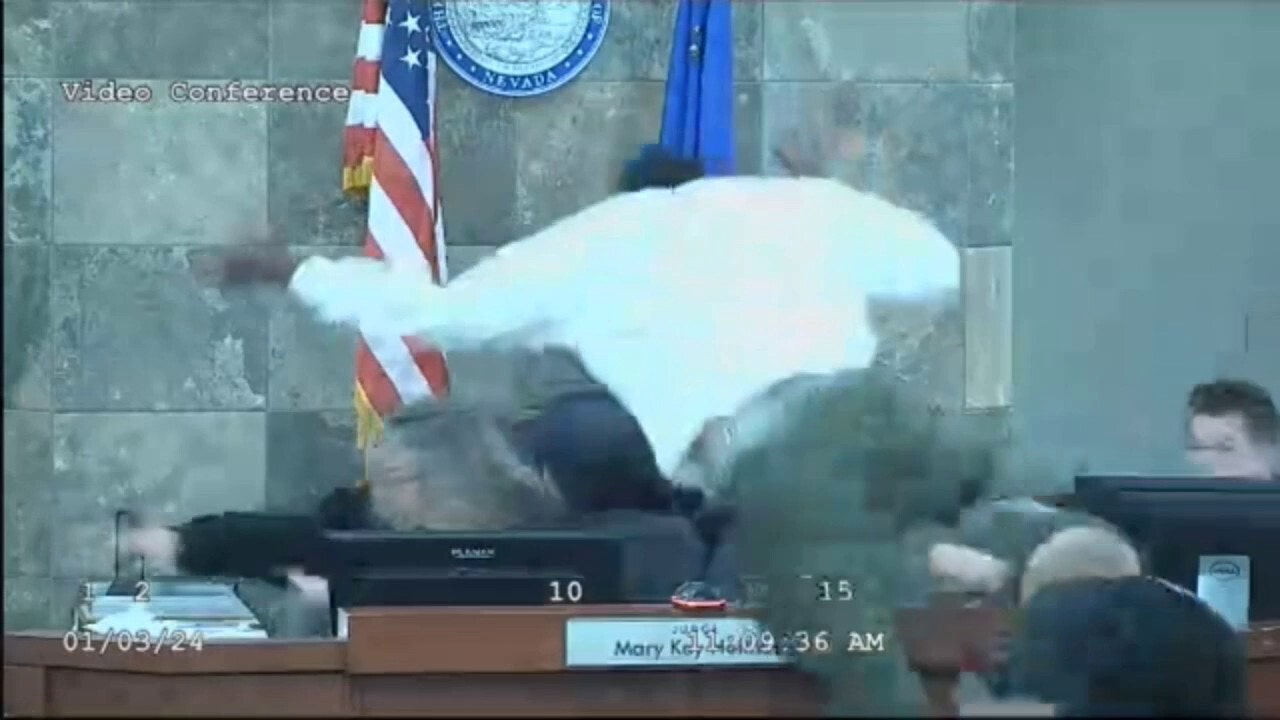Inside a sprawling compound in Phoenix, leaders of the influential conservative group Turning Point Action were hatching plans to fix what they see as a mortal threat to the Republican Party: its voters’ avoidance of early voting, especially by mail, since the 2020 election.
The group’s officials, and many national Republicans, worry that Democrats have built a major strategic advantage by marshaling their voters to cast ballots early while G.O.P. voters wait until Election Day. That phenomenon stems largely from former President Donald J. Trump’s persistent falsehoods about mail voting — amplified at times by Turning Point Action officials — and the deep skepticism they have created among conservative voters.
Now an urgent search for a solution is underway, with Turning Point Action at the forefront.
The group, which began as an insurgent organization for young Republicans and has become a powerful player in right-wing politics, is aiming to raise and spend more than $108 million on a Chase the Vote program with hundreds of staff members in Arizona and Wisconsin. They will follow a few simple steps: Identify Republican-leaning voters who have not turned out in the past two elections. Make a personal connection with them over the next seven months. Then, in the group’s words, “chase the ballots.”
Political diplomacy will be required.
“You’re each going to have assignments of hundreds of people,” Tyler Bowyer, the group’s chief operating officer, explained to about 20 trainees last week. “Do you think wearing a MAGA hat attracts 50 percent of those people?”
The Chase the Vote program is one of the largest and most expensive efforts on the right to persuade Republicans to vote early. Their widespread abandonment of the practice, which was popular in both parties before 2020, means that Republican candidates are now far more at the mercy of Election Day problems like bad weather, long lines or voting machine hiccups.
At the same time, Turning Point Action’s program is still bound by strongly held conservative opinions on early voting and casting ballots by mail. The group’s officials are quick to express skepticism of the security of those practices, despite a lack of evidence of widespread fraud, and to call for tightening of election laws.
Mr. Bowyer has said publicly that his group is not trying to turn current Election Day voters into early voters. Its main focus, he says, is showing low-propensity voters — those who have not turned out in recent elections — all of the ways they can cast their ballot.
Charlie Kirk, the founder of the Turning Point empire, said in an interview: “It’s better to participate, even in that way” — early voting — “than not participate at all. That’s our argument.”
Party-wide mistrust, fueled by Trump
But improving Republicans’ early-voting turnout will be a challenge. Mr. Trump and his allies continue to argue that mail voting is rife with fraud.
During a Fox News town-hall event last month, Mr. Trump told the host Laura Ingraham, “If you have mail-in voting, you automatically have fraud.” At a rally in Wisconsin this week, he promised to “secure” elections with “one-day voting.”
The damage for Republicans in the Trump era has been clear.
In the 2020 election, when many Americans voted by mail because of the pandemic, seven million more Democrats than Republicans voted early in the 20 states that track party data, according to the United States Elections Project. In the 2022 midterms, two million more Democrats than Republicans voted early in 24 states, according to the project, an advantage built almost exclusively off mail ballots. Each of those years, Republican candidates in crucial races lost narrowly.
Just 28 percent of Republicans support allowing any voter to cast a ballot by mail if they want to, compared with 84 percent of Democrats, according to a February study by the Pew Research Center.
Mindful of this trend, the Republican National Committee this year began a Bank Your Vote program encouraging early voting. In an interview with NBC News last month, Lara Trump, the new co-chair of the committee and Mr. Trump’s daughter-in-law, said, “We have to start encouraging Republican voters to do things like voting early, trust mail-in voting.”
Still, Mr. Trump has put the party in a difficult position. The new leadership at the R.N.C., handpicked by Mr. Trump and his allies, initially signaled that it would abandon Bank Your Vote before reversing course. Top officials at Turning Point continue to criticize voting by mail, even as they lead their new Chase the Vote effort.
“The threading the needle for us, the game that we have to play, that we have to figure out: How do we get a bunch of people who are deeply concerned about these processes that are being changed and manipulated to participate in those same processes?” Mr. Bowyer said in an interview, referring darkly to the unproven conservative theory that Democrats are deliberately changing election rules to benefit themselves. (Mr. Bowyer was one of Arizona’s fake electors in the 2020 election, a scheme that the state’s attorney general is now investigating, according to The Washington Post.)
‘Soul searching’ over a Republican disadvantage
Election Day in 2022 was when Mr. Kirk realized things needed to change.
Walking into a polling place at a Phoenix church to proudly vote for Kari Lake and other Republicans, Mr. Kirk said, he was greeted by a two-and-a-half-hour line caused mainly by malfunctioning machines. Other polling sites in the area had similar problems.
Ms. Lake ended up losing the race for governor to Katie Hobbs, a Democrat, by about 17,000 votes. Roughly 19,000 more Democrats than Republicans voted by mail.
“That kind of started a lot of soul searching between our team,” Mr. Kirk said in an interview. “I asked the question, I said, ‘What could we have done better?’”
He added, referring to the weekslong period of early balloting, “We could have played better in Voting Month.”
That would seem to be a significant public shift from Mr. Kirk, who wrote an essay for Fox News in July 2020 calling mail voting a Democratic power grab and who repeatedly questioned the security of mail voting in social media posts around the 2020 election.
In the interview, Mr. Kirk stood by those sentiments. “There is understandable skepticism about filling in a precious ballot, which we take very seriously, and putting it into the mail,” he said, adding that conservatives were not fans of the Postal Service.
Still, Mr. Kirk says, Republicans should be aware that they have a “buffet line of voting options.”
In a memo sent to donors last year, Turning Point Action said it hoped to hire more than 500 full-time “ballot chasers” in Arizona and 350 in Wisconsin. If the group raises its entire goal of $108 million — officials said they had raised “tens of millions” but still had a ways to go — it plans to expand into Georgia and possibly Michigan.
A mission to change Republican voting habits
Powering the Turning Point effort is a vast data operation led by Matthew Martinez, the data director for Chase the Vote and a former field director for Ms. Lake’s campaign.
Mr. Martinez has set up shop in one of Turning Point’s cavernous rooms at its Phoenix headquarters, with 4-foot-by-6-foot whiteboards with maps of states, counties and cities speckled with handwritten numbers. He methodically carved up Arizona and Wisconsin by hand into his own precincts, wards and districts, identifying 400 to 600 low-propensity Republican voters in each precinct.
The voters who could flip those states red, Mr. Martinez argues, are not in traditional battleground areas, but rather in safely red districts like that of Representative Paul Gosar of Arizona.
“The mind-set right now for the past four years, or even more, is flip, flip, flip,” Mr. Martinez said in an interview, referring to the party’s focus on highly competitive areas. “What I’m saying is, we need to turn out our base.”
The group also plans to use its Chase the Vote infrastructure for what it calls its election integrity efforts. Mr. Bowyer said on a recent Turning Point podcast, “If you have bodies on the ground that are becoming aware of the voting habits,” then “you’re going to be able to clean the voter rolls easier.”
Chase the Vote is still in its early stages, having trained only 20 of its ballot chasers so far. And while the new hires will encounter mistrustful voters, top Turning Point officials have also faced skeptical donors, who tend to be more comfortable with writing big checks and seeing immediate returns in the form of splashy ads rather than funding the grunt work of a new and untested field operation.
Even as trainees broke for a catered lunch of In-N-Out Burger, Mr. Kirk was down the hall, meeting with four major donors.
“It’s kind of challenging the muscle memory that we can keep on just trying to flood the zone on Election Day, and keep on expecting to win, and we’re losing on the margins,” he said in the interview. “And so, if you are falling short on the margins, and you want to get to victory, and there is this massive 30-to-40-day window where the opposition is dominating and you’re not even playing, it is rational to do something in that 30-to-40-day window to then try to be conclusive and successful.”
Mr. Kirk said he planned to vote early in-person this fall, and would capture it on video.
‘We need to be Ned Flanders’
Connecting with these low-propensity voters is part of what political operatives call “relational organizing,” a trendy political term that means using personal, one-on-one connections rather than mass messaging like ads.
During the training, Mr. Bowyer repeatedly showed an image of Ned Flanders, the relentlessly genial character from “The Simpsons” who greets neighbors with a “hi-diddily-ho.”
“We need to be Ned Flanders,” he said.
Mr. Bowyer has emphasized the importance of coming across as “human” — not always an easy task within a movement fueled by Trumpian grievance.
On a recent Turning Point podcast, he urged listeners not to “be mean and angry and aggressive and tell people they’re stupid.”
He added: “Look, if we walked up to people and were like: ‘Oh, you’re on the early voting list? You’re an idiot.’ Do you think they’re more motivated to vote? Do you think they’re more motivated to become an Election Day voter? And that’s effectively what’s happening right now.”






